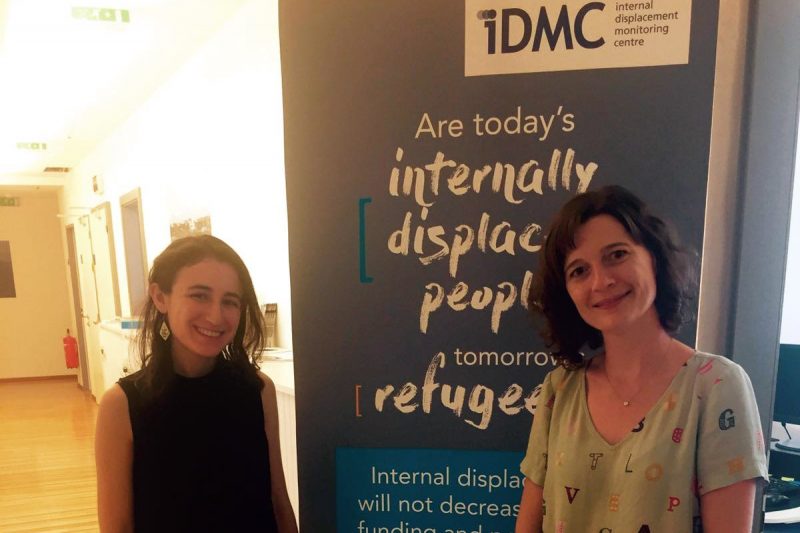This summer, I was in Geneva, Switzerland, working for the Internal Displacement Monitoring Centre (IDMC) of the Norwegian Refugee Council. While at IDMC, I worked on answering a vital question in the humanitarian world: how do displaced people find jobs, especially in conflict zones?
This question is particularly relevant for my focus region at IDMC: northeastern Nigeria. Boko Haram has displaced over a million people over the last half decade. The city Maiduguri has doubled in size with the inflow of internally displaced persons (IDPs) – and one key challenge is to understand how an economy can absorb so much extra labor in such a short time span.
In Geneva, I met with officials from organizations like UNHCR, MSF and the WTO to get at the question of employment during displacement, and to understand how the private sector can influence local economies in northeastern Nigeria. My interest in employment in Nigeria began during my first semester at Yale, when I took a course with Professor Casey King on the reintegration of former Boko Haram militants. That class allowed me to think about how economic empowerment and access to jobs impact peace-building.
As a joint degree student between the Jackson Institute and the Yale School of Management, this summer was a great way for me to explore the intersection of my degrees. I gained a better understanding on how vital it is to collaborate between the public and private sectors to address humanitarian needs, especially for IDP employment. After graduation, I plan to return to the humanitarian field, and will leverage the experience I had in Geneva to more craft more strategic partnerships between stakeholders in conflict zones.
Plus, it was great to be in Geneva, the center of the international community. I loved being surrounded by people from all over the world – even on the bus to work, it was humbling to hear so many languages being spoken!
